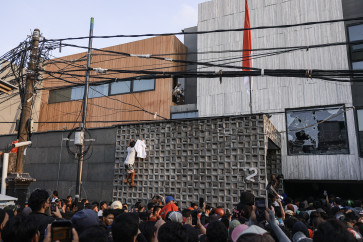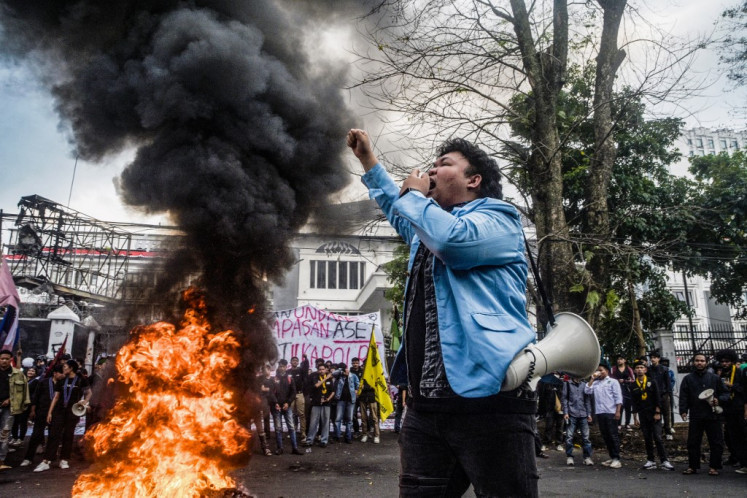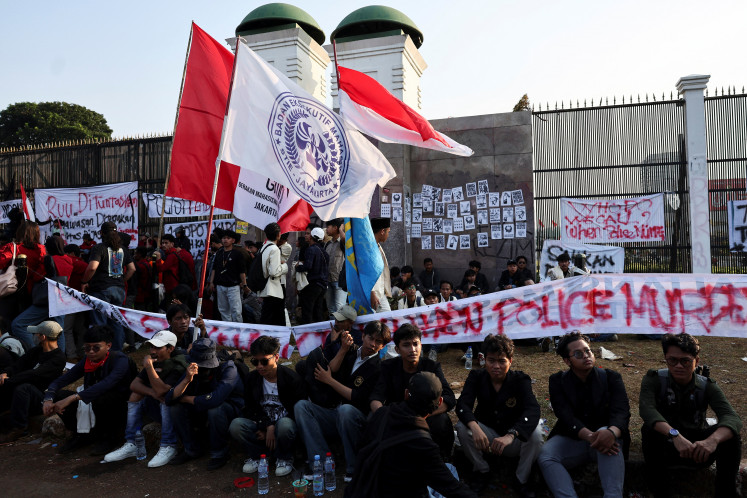Popular Reads
Top Results
Can't find what you're looking for?
View all search resultsPopular Reads
Top Results
Can't find what you're looking for?
View all search resultsMenteng residents seeking property tax break
Dozens of residents of the upscale Menteng area in Central Jakarta are seeking a reduction in their property tax following the administrationâs decision to drastically hike the taxable value of property (NJOP) by 120 percent to 240 percent this year
Change text size
Gift Premium Articles
to Anyone
D
ozens of residents of the upscale Menteng area in Central Jakarta are seeking a reduction in their property tax following the administration's decision to drastically hike the taxable value of property (NJOP) by 120 percent to 240 percent this year.
Menteng subdistrict head Sulastri said 56 residents had requested a reference letter to propose a property tax reduction since tax returns were distributed in February.
'Most residents who have asked for a reduction in the property tax live in elite RWs [neighboorhood units] such as RW 4, RW 5, RW 7 and some parts of RW 6. Many of them are retirees, while others probably inherited the houses and don't have high positions like their parents,' she said in a phone interview Wednesday.
She said some of the residents live on upper-class streets such as Jl. Teuku Umar and Jl. Taman Suropati.
The administration estimates revenue from property and building tax will surge by 82.2 percent to 6.7 trillion (US$598.2 million) this year from Rp 3.68 trillion last year.
Recently, Governor Joko 'Jokowi' Widodo promised to give tax breaks only to residents with demonstrated need. His promise is in line with Gubernatorial Decree No. 211/2012, which allows for a maximum tax reduction of 50 percent for taxpayers who cannot afford the tax and a maximum of 75 percent for war veterans.
Tumpal, a resident of Jl. Purwakarta, said he planned to seek a property tax reduction because his family was not able to pay the rising property tax. He said this year he would have to pay Rp 35 million in property tax, more than double the Rp 14 million he paid in previous years.
'I think the increase in the NJOP is fair and rational because the property prices here are skyrocketing. But personally, I feel burdened by the amount of the property tax. We need time to adjust our spending,' he said.
His now deceased father had been receiving a sizeable tax break because he was a veteran. Now, however, Tumpal has only been able to secure a 10 percent tax reduction.
'There should be a dispensation for residents who preserve their old buildings like our family. It is not easy to preserve an old building. We must struggle with the dust and use expensive paints because the walls need special treatment,' he said.
Tumpal's Dutch colonial-era house has been declared a heritage site. The history of Menteng dates back to 1908, when the area was purchased by real estate company De Bouwploeg and developed as a housing complex for the elites.
Although a 1975 gubernatorial regulation declared Menteng a historical preservation area in the city, many houses were converted, without the city administration's knowledge, into garish mansions that left little or no glimpse of the old architecture. Other homes were neglected and now lie in ruins, such as the famous Rumah Cantik on Jl. Cik Di Tiro.
Tumpal said several of his old neighbors who could no longer keep up with higher property tax ended up renting or selling their properties to business tycoons moving in from other upper class residential areas such as Pantai Indah Kapuk or Kelapa Gading in North Jakarta.
'The demand for houses in Menteng is higher than what's available because this neighborhood is free from floods and safe,' he said, adding that his house was appraised at Rp 60 billion in the market.
Urban activist Marco Kusumawijaya said the property tax should be integrated with spatial planning, as it could be used as an important instrument to control land use. He said the city administration could use the property tax to protect and revitalize heritage areas.
'For example, the city can ease the tax in heritage areas such as Menteng and Kebayoran Baru, so the owners can get tax breaks for preserving old buildings,' he said.
He said a property tax break could also be used as an incentive or disincentive to control infrastructure, transportation and flooding issues. It could be used to manage the growth of industries in the capital, encourage the development of buildings with mixed functions and control the use of ground water.










